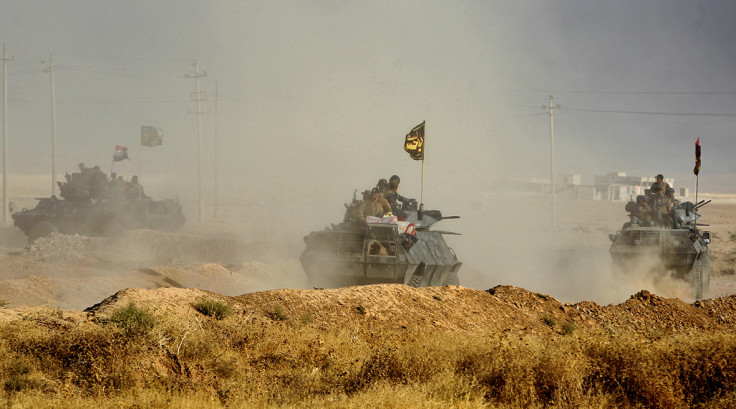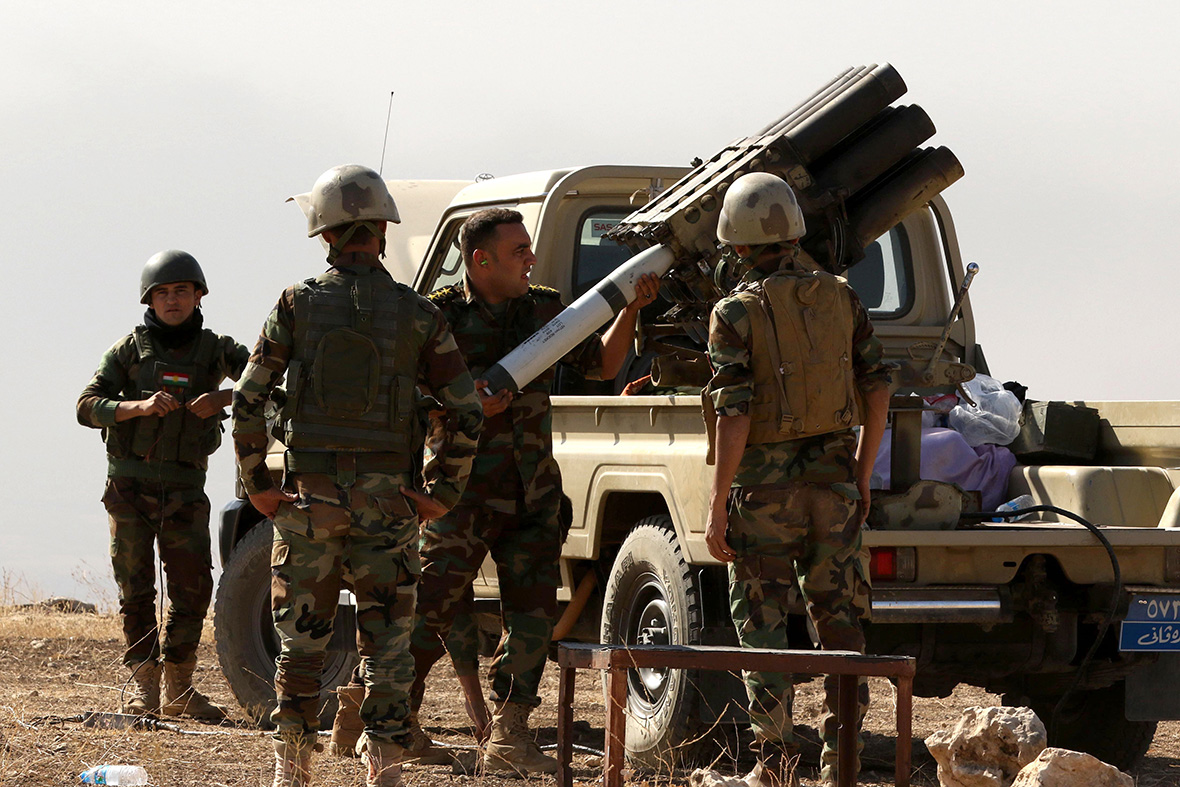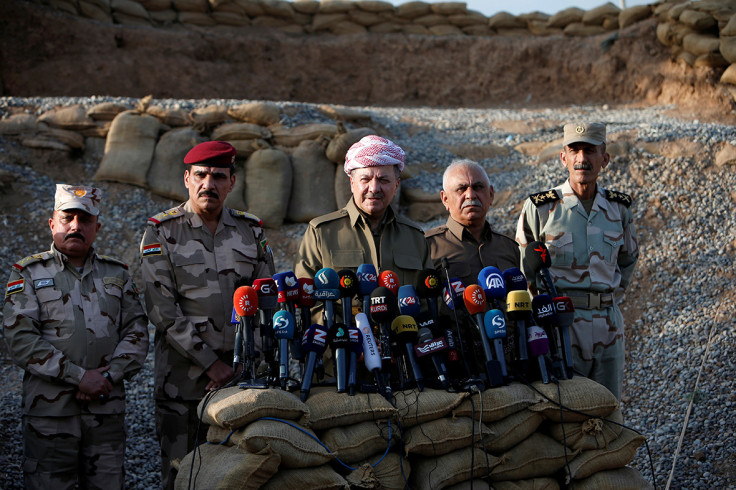Photos of the battle to drive Islamic State out of the city of Mosul
The UN is bracing for the world's biggest humanitarian effort in the battle for Mosul, which could leave up to a million people homeless.
Convoys of armoured vehicles are advancing towards Mosul after Iraqi and Kurdish forces backed by US-led air strikes launched an operation to drive Islamic State (Isis/Daesh) out of Iraq's second-largest city. The battle for Mosul is likely to be long and it is impossible to predict when the troops will enter the city itself.

The forces converging on Mosul wave a variety of flags. More than 25,000 troops, including Iraqi soldiers, Sunni tribal fighters, Shia militias, Kurdish fighters and US forces will take part in the operation, the most complex since American troops withdrew from Iraq five years ago. The complex make-up of the combined force and past animosities have raised concerns that Mosul's liberation could ignite new conflicts.




The role of the Shia militias has been particularly sensitive, as Nineveh, where Mosul is located, is a majority Sunni province. Shia militia forces have been accused of carrying out abuses against civilians in other Sunni areas. Iraqi Prime Minister Haider al-Abadi sought to allay fears that the operation would provoke sectarian bloodletting, saying that only the Iraqi army and police would be allowed to enter the mainly Sunni city. The Iraqi military units, including elite special forces that are expected to lead the charge into the city, are conducting their side of the operation from the Qayara air base, south of Mosul.









Kurdish Peshmerga forces are stationed to the north and east of Mosul. Lt Col Amozhgar Taher of the Peshmerga said his men would not enter the city itself due to their concern for "sectarian sensitivities." The Peshmerga have reportedly taken control of seven villages east of Mosul and they control the main road linking the city with the Iraqi Kurdish regional capital, Irbil, further to the east.








Armed forces closing in on Mosul said they had secured some 20 villages on the outskirts of the city in the first 24 hours of the offensive. Kurdish forces regained control over around 200 square kilometres of territory, according to Kurdish regional president Massoud Barzani. Speaking to reporters in Khazar town, just few kilometres away from front-lines of fighting, Barzani said he hoped that the cooperation between the Kurdish forces and the Iraqi government forces would reflect positively upon future relations between the region and the central government.

The United States has increased the number of troops it has in Iraq to more than 5,000 as part of a US-led coalition providing air support, training and advice to the Iraqi military, which collapsed in 2014 in the face of Islamic State's territorial gains and advance towards Baghdad.
France is the first country to join the US in conducting aerial operations against Islamic State, including in Syria, after several attacks by the group in France.


Isis captured Mosul in the summer of 2014when it swept across northern and western Iraq, and it was there that leader Abu Bakr al-Baghdadi first declared a self-styled caliphate, which at that time stretched across a third of both Syria and Iraq. However, over the past year the extremist group has suffered a series of defeats, and in Iraq it is now mostly confined to Mosul and some smaller nearby towns.
Air strikes have helped drive Isis out of much of the territory it held but 4,000 to 8,000 fighters are thought to remain in Mosul. Residents have dismissed reports on Arabic television channels of an exodus by the jihadists. "Daesh are using motorcycles for their patrols to evade air detection, with pillion passengers using binoculars to check out buildings and streets," said Abu Maher. He and others contacted were preparing makeshift defences and had been stockpiling food in anticipation of the assault, which officials say could take weeks or even months. The residents withheld their full names for security reasons and Reuters was not able to verify their accounts independently.
The fate of more than a million civilians trapped inside Mosul will be critical as the battle intensifies in the days and weeks ahead amid concerns that IS could use them as human shields. The Iraqi army dropped tens of thousands of leaflets over Mosul, warning residents that the offensive was imminent. The leaflets assured the population that advancing army units and air strikes "will not target civilians" and told them to avoid known locations of Islamic State militants.
Reflecting authorities' concerns over a mass exodus that would complicate the offensive and worsen the humanitarian situation, the leaflets told residents "to stay at home and not to believe rumours spread by Daesh" that could cause panic.




The United Nations said it was bracing for the world's biggest and most complex humanitarian effort in the battle for Mosul, which could leave between 200,000 and a million people homeless. There are real concerns that Isis could gas civilians or use them as human shields. Just a few kilometres from the eastern front line, rows of empty camps for displaced civilians line the road, but aid groups say they only have enough space for some 100,000 people.
© Copyright IBTimes 2024. All rights reserved.







